Everything you need to know about MDMA
For decades, MDMA has been hailed by users as the go-to drug for techno parties and raves. The drug is widely known for its presence in ecstasy pills and has a global reputation as being both illegal and potentially hazardous. Yet it also gets some positivity from science, as a possible aid for mental conditions like severe PTSD, in the form of MDMA therapy. In this blog, I tell you everything about the effects, the dangers, and the potential of molly. Are you curious to discover more?
What is MDMA?
We live in an age where drugs are an integral part of society. Drugs like MDMA are everywhere; at parties, at work, at the bus stop, and even just at home, on the couch with friends. The big taboo around drugs is slowly beginning to break, but for many, there are still mysteries to solve. What is so special about MDMA, and how does it differ from molly drugs or XTC? What are the dangers and risks? Perhaps you have experimented with it yourself, or know someone who uses it from time to time. But first, let's start with the question: what is it?
MDMA is a popular synthetic drug also known as molly, X or E, and is famous for wild acid house parties, loving conversations between strangers, and terrible hangovers. The drug occurs in powder and crystal form, and is the main ingredient in the ecstasy pill.
MDMA stands for 3,4-methylenedioxymethamphetamine. The drug is almost always swallowed, entering the bloodstream through the gastrointestinal tract. Through the bloodstream, it enters the brain. Here, there are billions of nerve cells that are interconnected. To transmit an impulse requires a chemical, also called a neurotransmitter. These play an important role in providing information in the brain. MDMA resembles the neurotransmitters serotonin, norepinephrine, and dopamine. When taking the substance, the levels of these neurotransmitters are increased. This produces a whole range of effects such as increased energy, dilated pupils, a euphoric feeling, and an increased desire for social contact. Because of these MDMA effects, the drug belongs to the empathogens.
History of MDMA
There is a lot to tell about the history of MDMA. It is one that not many people know much about. Long before there were raves, the drug was already in use. Read on to discover more!
- The discovery
The history of MDMA originates in a chemistry lab. This is where a new stimulant was inadvertently created. In 1912, MDMA was first synthesized by Merck in Germany while researchers in pharmacology were working on an array of new medications. The drug manufacturer was researching the medicinal properties of plants and became known for developing top-quality morphine and cocaine. MDMA was extracted from oil of nutmeg, also known as safrole. At the time, it entered clinical trials to be used as an antihemorrhagic, but it ultimately failed and no more research was conducted. The drug was later investigated by the U.S. Army, for a possible military use, but it turned out to be unsuitable for that as well.
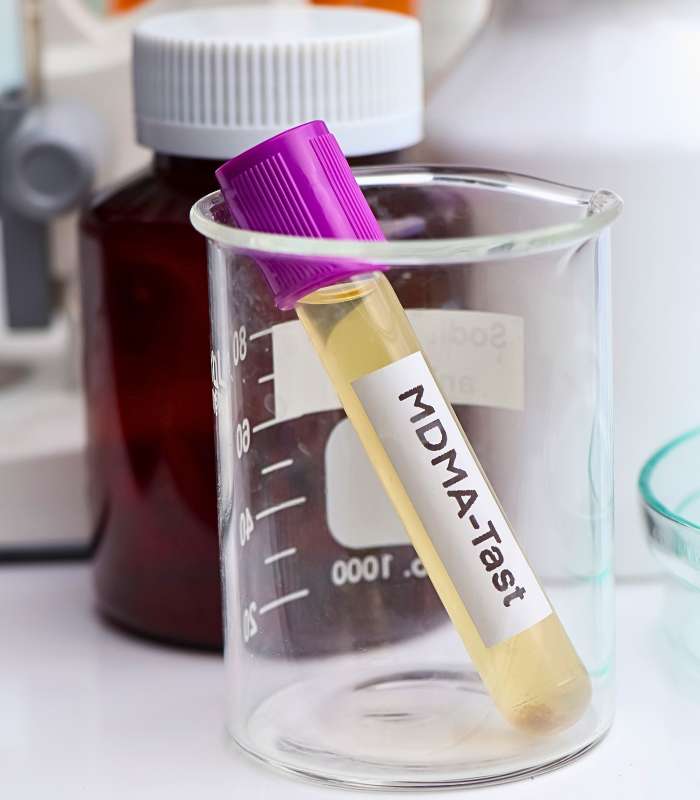
It took many years before MDMA was pulled from under the dust and rediscovered. It was the American researcher Alexander Shulgin, among others, who popularized MDMA in the psychotherapeutic community during the 1970s, but using a new method. He developed a whole range of other drugs, including the powerful drug MDA (3,4-Methylenedioxyamphetamine).
- Party drug
Things moved quickly, and people discovered the new drug could produce amazing MDMA effects. The Flower Power movement in the 1960s embraced drugs, and substances, including LSD and MDMA, became more widely known.
The ecstasy drug was linked to parties where electronic music was played, also called raves. Acid house, techno and other types of electronic music went perfectly with the character of this drug. At least, that's what a lot of partygoers discovered in the 1980s. Born was Goa, a movement called ‘the second psychedelic wave’ that originated in India. Apart from all the partying, did you know, it was also used as MDMA therapy, including couples therapy, trauma treatment and depression?
- Illegal substance
For a long time, MDMA has been classified as an illegal substance. In America, the drug has been in Schedule 1 of the Controlled Substance Act since 1985. Schedule 1 is the heaviest class and means that the drug is dangerous to public health and is not suitable for medical or therapeutic purposes. Moreover, this strongly increases the difficulty to conduct research on it. Other drugs on that list were MDA and LSD. Heavy prison sentences were introduced and severe fines were handed out to people who did possess ecstasy. In 1988, MDMA entered List 1 of the Opium Act in the Netherlands.
Subsequently, the criminal circuit took off. Despite the ban, interest in MDMA continued to grow. The price for an XTC pill went up and a lot of products were sold that contained other ingredients, such as amphetamines, ephedrine and MDA. As a result, a lot of people ended up in the hospital with overdose symptoms. Today, there is a thriving illegal drug market, where MDMA and XTC pills are plentiful, with unguaranteed quality.
What's the difference between molly, X and XTC?
Because MDMA is an illegal substance, many pseudonyms were created. In the 1970s, a group of chemists in California decided to market MDMA. At first they came up with the name ‘empathy’, but later decided to go with ‘ecstasy’ because it sounds stronger. Variants of this soon became ‘E’, ‘XTC’, and ‘X’. The original ecstasy meaning is about marketing a new drug and its effects. Of course, this worked well. Who doesn't want to experience ecstasy?
Where all these nicknames come from is not always known. 'Molly' is another popular slang. Especially in America, it is often clear what you mean by ‘molly effects’. The meaning Molly is said to come from the word molecule. Although it all means MDMA, there are users who get confused and think they are using something else. The advantage of using slang is that not everyone knows what you are talking about. Alternatives are ‘molly pills’, and ‘molly drugs’. Ultimately, the MDMA meaning is a difficult scientific name, so people have come up with alternatives. Nowadays, many drugs are sold under these names, when in reality they contain very different ingredients. This makes everything even more confusing.
How is molly made?
MDMA was originally synthesized from a precursor found in nutmeg, a substance called safrole. The recipe for MDMA has been modified several times. Today, it is often manufactured completely synthetically in a laboratory. It is a chemical process, which involves some dangerous steps and requires very expensive equipment. After the first step in the manufacturing process, the MDMA freebase is created. This is usually an orange-colored oil, which can then be purified to form hydrochloric salt crystals. These pure MDMA crystals can then be broken into MDMA powder. This process produces a large quantity of chemical waste.
It is possible to create XTC pills by pressing the powder, or fill them into capsules. To make MDMA pills, certain excipients are used, also called the ‘carrier’, or ‘fillers’. This is, for example, lactose or lidocaine. Because the manufacturing process of illegal drugs is underground, very little is known about it. No one can verify a pill is purely manufactured, according to clean production methods. Drugs are often adulterated with highly toxic substances such as chalk, washing powder or other things.
Effects of MDMA
A whole book could be written about the effects of molly. It is a versatile drug that can produce a lot of effects ranging from strong physical to psychological. MDMA is also known as an empathogen. As that word suggests, the XTC drug has a strong effect on mood.
What to expect when taking MDMA for the first time
The most common effects of MDMA are:
- A euphoric and loving feeling
- Warm tingling all over the body
- Need for connection with others
- Reduction of anxiety
- Sensuality
- Openness in expressing emotions
- Sense of hugging and talking
- Energy, desire to dance
- Music sounds more intense
A lot of things happen in your body under the influence of MDMA, too. These are some of the most common physical effects of MDMA:
- An increased heart rate
- Increased blood pressure
- Sweating
- Dilated pupils
- Feeling very thirsty
- Tense jaws
- Grinding teeth
- Difficulty urinating
- Lack of appetite
Is MDMA a psychedelic?
MDMA is a psychedelic drug that interacts with serotonergic activity at the 5-HT2A receptor, a common target for psychedelic drugs and mediates psychedelic effects. Officially, MDMA is not one of the psychedelics, but the drug does have some characteristics that could fit a trip. According to Alexander Shulgin, the ecstasy effects can be compared to cannabis, or the effect of magic mushrooms, without the hallucinogenic component. As an empathogen, MDMA is best known as a ‘cuddle drug’, and a way to express one's feelings. The drug has also been called a psychedelic amphetamine. Actually, the drug is somewhat in between the class of amphetamines and hallucinogens in terms of its effects. In terms of molecular structure, the MDMA molecule resembles both methamphetamine, and the psychedelic mescaline, the substance from the Peyote and San Pedro cactus.
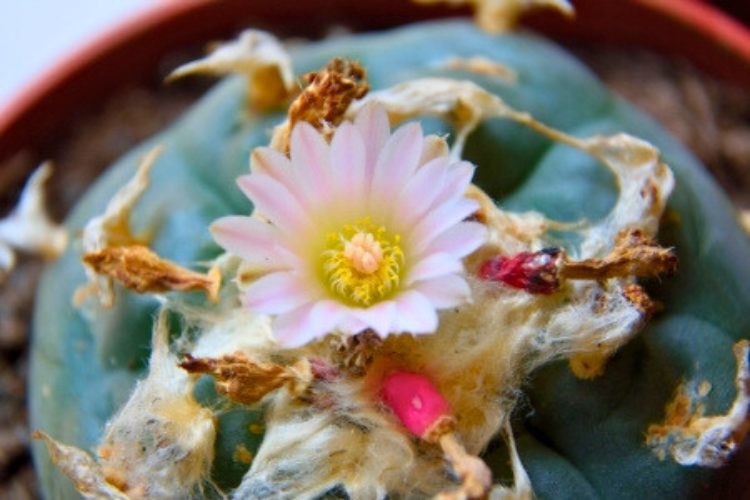
Sex on MDMA
MDMA can make you experience the most intense sensual feelings for your lover. Not surprisingly, sex and MDMA are often mentioned in the same breath. When MDMA became popular, the drug was marketed as a sex stimulant. But did you know that in practice it is not so easy to have sex on this drug? There are several reasons for this. Because of having a dry mouth, kissing is not easy. For a man, it can be difficult to get an erection on molly. Although lovemaking that involves penetration is not always easy, it is certainly possible to express yourself in a loving way. For example, it can be wonderful to hug and caress, or hold each other tightly.
Ecstasy is often used for chemsex, a popular way to combine sex and drugs. Usually, in addition to molly, other drugs such as GHB, 3-MMC and speed are also used. Besides the dangers of combining different drugs, there is also a greater chance of an injury or venereal disease.
MDMA dosage
The same applies to dosing MDMA as other drugs: know what you're taking. It often starts with testing your MDMA or XTC pill to make sure it's the right substance. Many pills on the market are mixed with other substances. This makes it more difficult to determine what a proper dose is. An average dose of pure MDMA is between 50 and 125mg, more is often considered a high dose that carries heightened risks. There are a lot of pills on the market that contain very high doses, sometimes more than 300mg. This can be life-threatening, especially if you don't know it. So always have your pill tested!
How long does MDMA last?
An Ecstacy trip can vary greatly in duration and strength, depending on several factors. Whether or not you have eaten plays an important role, as do your metabolism and your tolerance. The strength and purity of the drug also play a role.
With an average trip, you can usually feel the effects after about half an hour, with the peak moment after 1 to 2 hours, which can last several hours, about 3-4 hours. After that, you can still notice the effects of the drug for hours. These after-effects are usually more amphetamine-like, which means you feel energetic and awake.
After an experience, it is not very difficult for most users to fall asleep, but this depends on several factors, including poly-drug use. Depending on the combination with other substances, you may experience hangovers the day after, such as muscle pain, fatigue and feeling depressed.
Microdosing with MDMA
Microdosing with MDMA is less known than microdosing with psilocybin, for example, and not much scientific research has been done on it. Because it is an illegal drug, you can get in trouble with the courts as a user. We also know that regular use of ecstasy can have a negative impact on your serotonin and dopamine levels. This, in turn, can affect your mental well-being. In addition, your body can be negatively impacted by regular use of an amphetamine-like substance. Reasons why people microdose with this drug is to be more social, talk about difficult issues and gain more self-insight. A microdose is small enough to produce no effects except on a sub-perceptual level. A microdose of MDMA ranges from 5 to 25mg.
Sirius sells legal microdosing magic truffles specifically designed for taking a sub-perceptual dose. Microdosing with psilocybin has gained traction in recent years. Many users report a positive impact on their lives, such as improving creativity, feeling more positive and having more self-knowledge. Check out what's on offer in our Magictruffleshop!
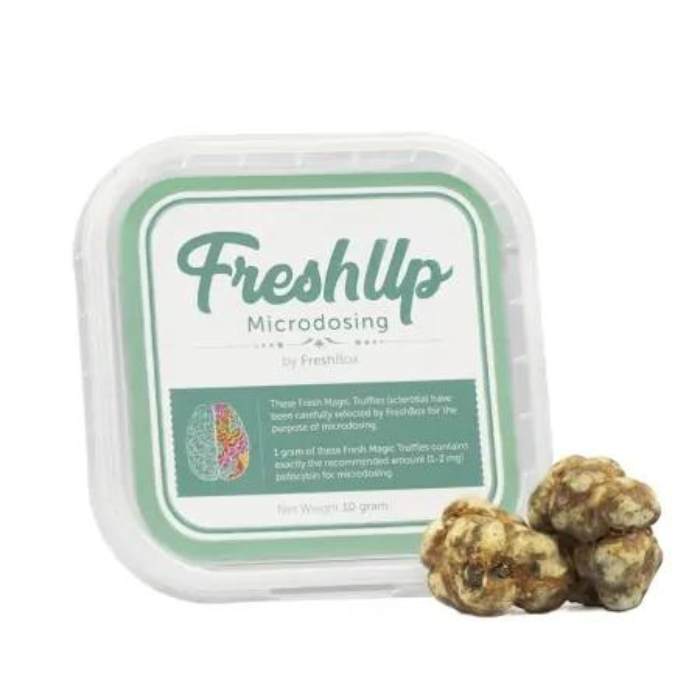
MDMA side effects
The side effects of MDMA depend greatly on how you use the drug. When abused, there can be unpleasant side effects that last a long time. When overusing MDMA, side effects may occur. There are several receptors in the brain that play an important role in how you feel. With excessive use of MDMA, these receptors can become desensitized, which can make it harder for your body to regulate neurotransmitters like serotonin. This can cause you to feel lethargic, less motivated, and overall depressed.
Another possible side effect of MDMA is that the drug can be dangerous for people with cardiovascular disease. Therefore, the use of MDMA is strongly discouraged for people affected by this. Other possible MDMA side effects are dehydration and overheating. It is important to watch out for high temperatures and drinking insufficient water. On the other hand, it is also possible to drink too much water. It is best to drink a glass of water every hour.
Possible ecstasy side effects include:
- Cardiovascular problems
- Decreased uptake of serotonin
- Feelings of anxiety
- Psychological dependence
- Dehydration
- Overheating
- Water poisoning
- Death in case of overdose
After E
One way to suffer less from drug side effects is to take some precautions. Eating healthy beforehand, drinking enough water, and possibly taking some extra vitamins can make quite a difference. Also important: After E is a product that helps reduce your MDMA hangover. Thanks to L-Tyrosine and L-Tryptophan, your serotonin levels are quickly restored. Check it out in our webshop!
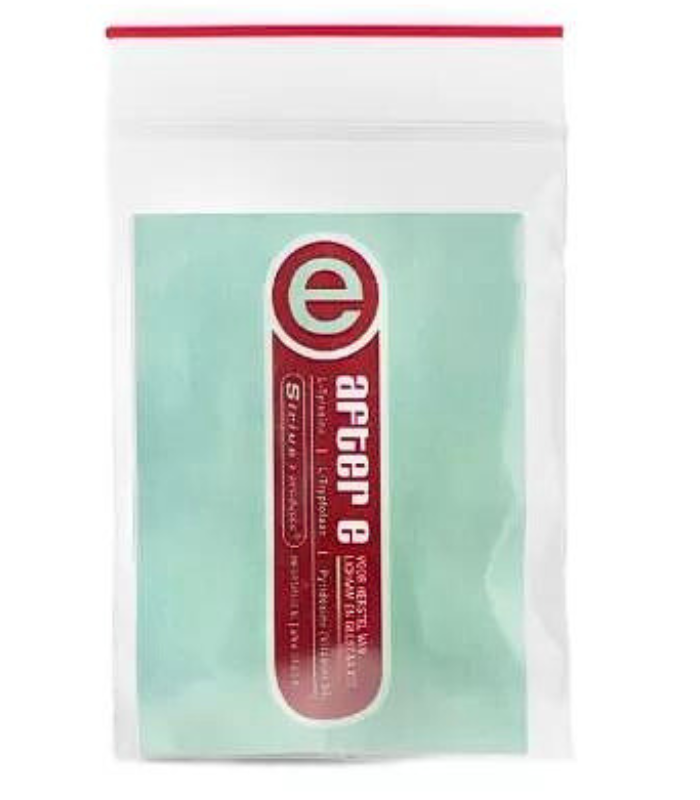
Is MDMA addictive?
MDMA can be addictive, as its use can cause psychological dependence. For several users, it can be difficult to have fun at a party without taking a pill first.
A pill often contains other substances, such as addictive amphetamines. So, it is also possible that you may become addicted to those effects.
It is best to use MDMA only very occasionally. Keep at least a few months of rest between uses to help your system get back on track and avoid psychological dependence. Redosing on molly is not advisable. One of the ecstasy effects is that neurotransmitters are depleted under the influence. A second dose no longer gives the desired effect and may even result in neurotoxic damage, especially when your body gets overheated, such as by standing in a hot venue without ventilation.
Combining molly with other substances
Many combinations between drugs are conceivable, and some combinations are already more dangerous than others. As a general rule, combining drugs is not recommended, because the effect can be stronger than the sum of its parts, and you will be in for an unpleasant surprise if you do not know how you will react. Consequently, this is a major cause of accidents, fatal or otherwise.
There are a number of combinations of molly and other substances, which are well known. Combining molly with other drugs is also known as ‘flipping’. The two drugs are taken according to a specific time interval so that the effects peak at the right time. Popular combos include:
- Weed
This might be one of the least risky combinations. According to some users, they combine weed to reduce the come-down on molly.
- Magic mushrooms
A popular combination also called ‘hippie flipping’. By combining these two substances, you can enhance the effects of both drugs. The risk exists in a powerful trip that is too intense for the user.
- Alcohol
Dangerous combination. Both alcohol and ecstasy are broken down in the liver and this causes the drugs to remain in the body longer. This can cause more side effects and the risk of overdosing.
- Ketamine
Also called ‘kitty flipping’. Combining these drugs increases the risk of overdose and side effects such as overheating, water intoxication, and bladder problems.
- LSD
Also called ‘candy flipping’. This is just about the oldest and most popular ’flipping’ combination. The major risk of this combination is the synergistic effect of the two substances, which can make the trip too intense.
- Speed
Dangerous combination because of the amphetamine effects of both substances. It raises blood pressure and strains the heart.
There are a number of substances that should never be combined with ecstasy and can cause the so-called serotonin syndrome. This means that the body has too much of this neurotransmitter, with serious consequences and in the worst case death. Examples are MAOis, 5-HTP, stimulants and amphetamines.
Dangers of impure molly and XTC pills
XTC pills are not always pure, and often additives are found in test samples. Accidents that happen with the drug are often related to impure pills. It is therefore incredibly important to test your drugs. In the Netherlands, you can test drugs anonymously at Jellinek. That way, there will also be more visibility into the various other drugs found in pills. Impure pills often occur because they are mixed with dangerous, but legal substances. It is easier for drug manufacturers to sell that way.
One of these dangerous combinations is the drug PMA or PMMA. One type of molly pill that has been in disrepute is the ‘Superman’.
MDMA test kit
Do you want to test molly? In the Netherlands, special test labs are open for drug testing. You can send in a sample of your drug and find out the results. If you want to test drugs yourself, you can buy a test kit from Sirius. We sell test kits from EZ test for ecstasy, ketamine, THC and LSD, among others. With an MDMA purity test, you can check for pure MDMA, or whether something else is included. A test is cheap and reliable. Check out our assortment here!
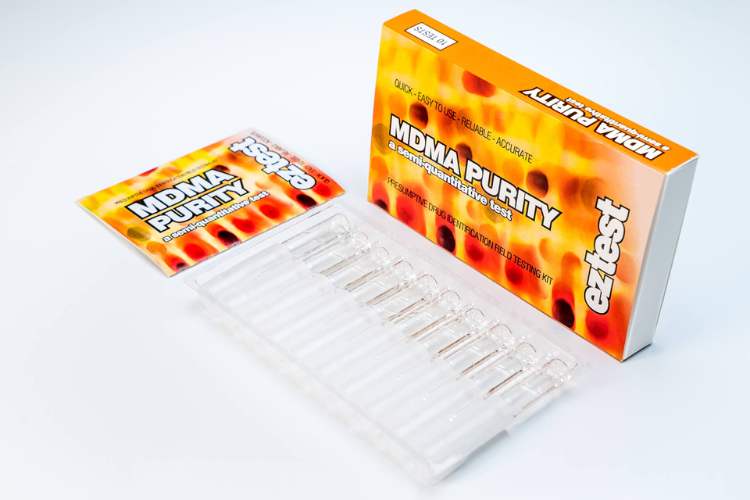
MDMA therapy
As early as the 1950s and 1960s, drugs such as LSD and MDA were tested as a possible treatment during therapy. What turned out: patients loosened up, could more easily access painful memories, and talk about traumas with their therapist. When several drugs were banned in America, under the leadership of conservative President Nixon, therapists began looking for a still-legal alternative. In the 1970s, MDMA was still legal, so it was put to full use. Compared to MDA, Ecstasy has even fewer side effects, and proved to be an ideal drug for couples therapy and processing trauma. At the time, therapists probably tried to keep ecstasy a secret as much as possible, fearing too much publicity and a ban as a result. Although eventually banned, MAPS (Multidisciplinary Association for Psychedelic Studies) decided in early 2000 to conduct the first clinical study using MDMA as a therapeutic agent for PTSD. They also released a study where veterans with war trauma were administered MDMA on a schedule.
Due to the promising results, the DEA (Drug Enforcement Administration) decided to evaluate the drug as a potential clinical agent. In this long-term follow-up study, you can read that 74% of participants remained free of PTSD symptoms, 3 years after the study with MDMA therapy. According to MAPS founder Rick Doblin, the drug has great potential, including reducing the anxiety response and deepening the relationship between the patient and therapist in a short period of time.
MDMA for depression
Nowadays, there is much interest from the scientific community to research the therapeutic potential of MDMA. Research has returned and it has become increasingly clear that MDMA could be very interesting as a therapeutic agent for PTSD and depression. MAPS has been doing research on various drugs for years, including LSD and psilocybin.
Conclusion
MDMA, or molly, is a versatile drug with an interesting and controversial history. There’s so much to tell about this substance, and facts go from ‘dangerous drug’ to ‘therapeutic panacea’
Do you want to experiment with ecstasy yourself? It’s important to know you are dealing with an illegal drug and are therefore punishable by law. The right MDMA dosage depends on several factors, and so it is very important to be very careful. The most important thing with MDMA, is to be sure the product you are taking is pure, and of the correct dosage. You can do this by getting your drugs tested.
Did you enjoy reading this article and do you like to write yourself? We are always looking for people who share our passion for natural products, who can also translate this into great texts. And we have an interesting reward for this. View all information for writers.
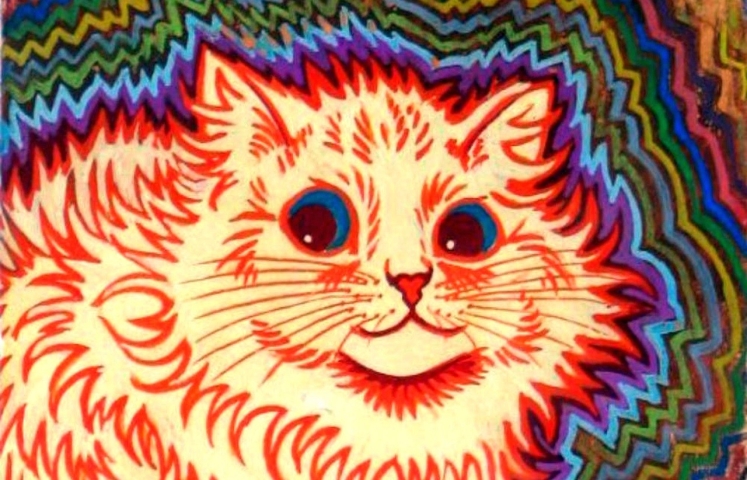 Blog Cannabis
Which cannabis strain suits you best?
Are you also one of those tree-hugging bio weed freaks like me? Or do you not care how organic your cannabis is? Cannabis is increasingly recogni [..]
02-06-2021
7 minutes
Blog Cannabis
Which cannabis strain suits you best?
Are you also one of those tree-hugging bio weed freaks like me? Or do you not care how organic your cannabis is? Cannabis is increasingly recogni [..]
02-06-2021
7 minutes
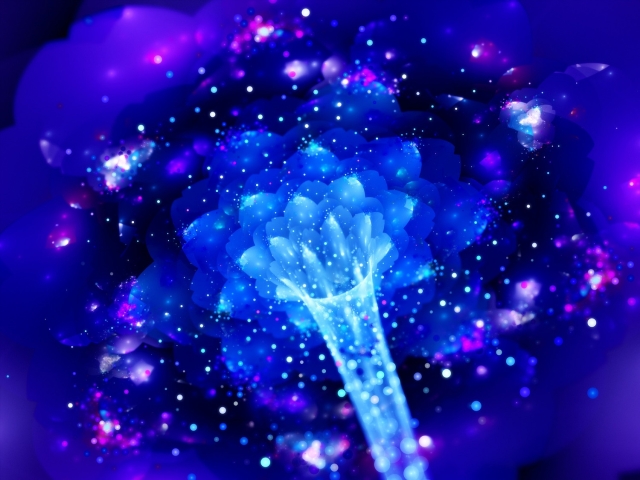 Blog User Reports
Lessons from the Teachers
I just had my fourth trip experience and am still enjoying the experiences I had there.
A week or two ago I ordered some truffles from Sirius [..]
20-05-2019
6 minutes
Blog User Reports
Lessons from the Teachers
I just had my fourth trip experience and am still enjoying the experiences I had there.
A week or two ago I ordered some truffles from Sirius [..]
20-05-2019
6 minutes
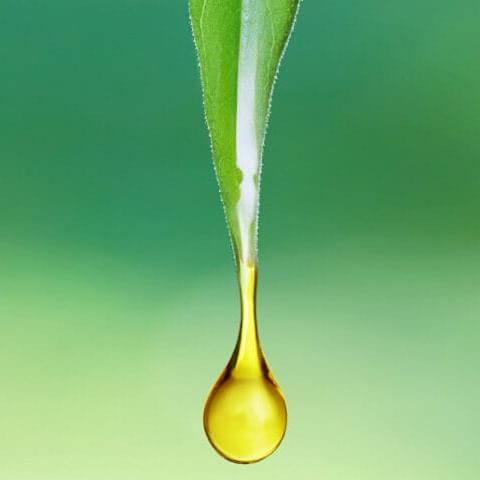 Blog CBD
CBD: a range of applications
A lot of research has been done on cannabidiol, a compound found in the hemp plant. The therapeutic potential is being experienced by more and mo [..]
Blog CBD
CBD: a range of applications
A lot of research has been done on cannabidiol, a compound found in the hemp plant. The therapeutic potential is being experienced by more and mo [..]









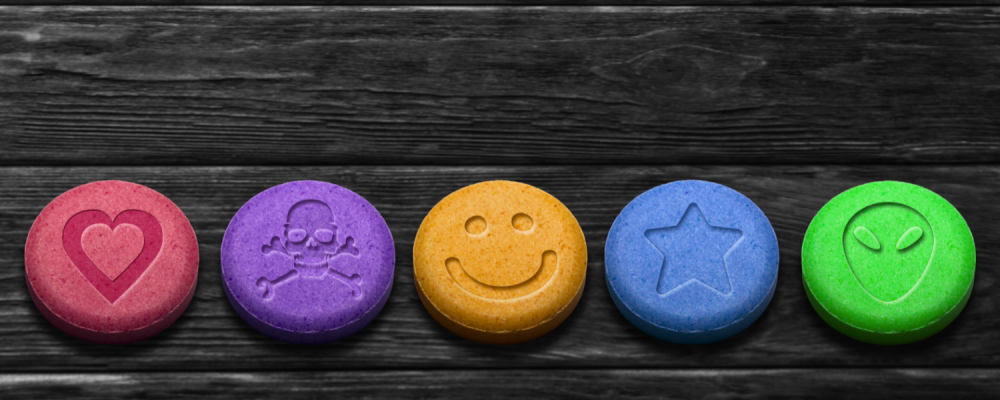



 Nederlands
Nederlands Italiano
Italiano Deutsch
Deutsch Français
Français Português
Português Español
Español Polski
Polski